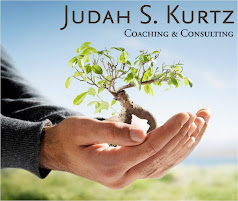I share this with you now because it sparked a paradigm shift. I have spent much of my life focused on my own spiritual evolution but am now realizing I have been neglecting aspects of my soul. I had collapsed the two concepts into one, believing the nurturing of my spirit was the same as nurturing my soul. I look forward to exploring this distinction further, and to the insights and expansion I experience as I dig deeper into my own humanity... focusing not just on the transcending of it.
"Ancient literature makes a distinction between the soul and the spirit, and this important consideration, foreign in many ways to common thinking, has been developed in creative ways by C.G. Jung and especially James Hillman. Although the issue is subtle and complicated, in general terms we can see the spirit as focused on transcending the limits of our personal, time-bound, concrete life. The spirit is fascinated by the future, wants to know the meaning of everything, and would like to stretch, if not break altogether, the laws of nature through technology or prayer. It is full of ideals and ambition, and is a necessary, rewarding, and inspiring aspect of human life.I close with a passage on soul by Marsilio Ficino (Book of Life), excerpted from Moore's book:
The soul is, as Jung says, the 'archetype of life,' embedded in the details of ordinary, everyday experience. In the spirit, we try to transcend our humanity; in the soul, we try to enter our humanity fully and realize it completely. Egged on by spiritual ambition, a person might imitate the old saints and go into the desert or the forest to be cleansed and discover a high level of consciousness. Full of soul, a person might endure the highs and lows of family life, marriage, and work, motivated by a compassionate and hungry heart." (p. 12)
"...people are often confused when faced with the traditional distinction between the soul and the spirit, but distinguishing these two dimensions of experience can be helpful. We might notice, for instance, how much we are motivated by the spirit in our concentration on the future, on understanding, and on achievement. We might then see how we neglect the soul, which has complementary but very different values, such as slowness, the past, inaction, feeling, mystery, and imagination....To suggest a distinction between soul and spirit is not to advocate a separation of the two. On the contrary, it seems best to arrive at a place where in effect the two work together, as in a marriage or partnership." (p. 32)
"If there were only two things in the world, mind and body, but no soul, then the mind would not be involved with the body, because it is fixed and emotionless and very distant from physical life. Nor would the body have anything to do with the mind, because by itself it is inept and powerless. It is also far removed from the mind. But if soul is placed between these two, adjusted to the nature of each, then one would easily become involved with the other." (p. 15)







3 comments:
Your readers may be interested in a blog dedicated to Thomas Moore's writing and work, Barque at http:barque.blogspot.com. It links to a free forum where ideas about distrinctions between spirit and soul may be further explored.
Nor was it in the soul and not in the spirit, it was in between them.
Your soul is earth you, your spirit is universal you often confused with guardian angels and the like, your body is your vessel.
Post a Comment